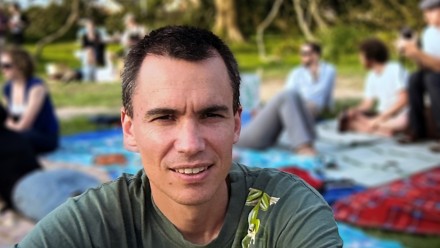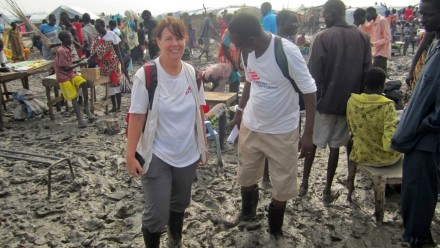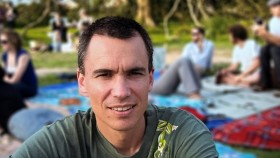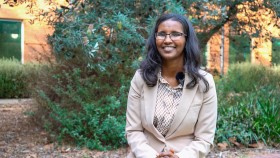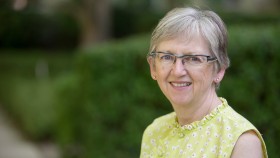Field epidemiology matters: Celebrating 30 years of Australia’s only field epidemiology training program
Share
Field epidemiology has been crucial to the COVID-19 pandemic response, but up until recently, the profession was one of relative obscurity. Even now, the definition of field epidemiology compared to epidemiology, in general, is probably a poorly understood nuance. But there is a difference. And field epidemiology matters.
Often referred to as “disease detectives,” field epidemiologists respond to urgent health situations on the ground and work alongside communities living with outbreaks. They identify cases, contacts, and risk factors for disease, and their community-level knowledge can help inform decision-makers and policy.
The ANU is home to Australia’s only field epidemiology training course, the Master of Applied Epidemiology (MAE). The MAE celebrated 30 years of training health leaders and the inaugural World Field Epidemiology Day with a symposium to reflect on the history of the program, display the achievements of current students, and explore how the MAE can remain relevant for the next 30 years.
“The MAE has helped make ANU the great global university that it is. It has done it by attracting fantastic students, and preparing great leaders who have gone on to make a difference,” says Professor Russell Gruen, Dean of the College of Health and Medicine.
“The MAE has shifted the paradigms of knowledge and approaches to teaching and learning, and to public health practise. It has contributed to the Nation’s wellbeing, and there could be no better evidence to that than the last two years in keeping Australia safe.”
The MAE’s distinctive “learning by doing” approach means students learn by applying their knowledge to real-world situations while working in public health institutions. And it’s these real-world crises that they will continue to respond to after graduating.
“For me, the MAE was really ground-breaking. It was a completely different way of learning to what I had been used to up to that point,” says MAE alumna Professor Raina MacIntyre, Head of the Biosecurity Program, Kirby Institute, UNSW.
“It was the most revolutionary thing I did in my career, it changed my career direction. I was planning on being a cardiologist, but everything I did in the MAE was infectious disease outbreaks and it changed my direction. It is really a wonderful program.”
The MAE is committed to embedding strong epidemiological responses throughout Australia and has a strong track record of attracting First Nations scholars with 16% of graduates identifying as Aboriginal or Torres Strait Islander. Some of these graduates are now supervising the next generation of First Nation MAE scholars.
The MAE is dedicated to strengthening field epidemiology response capabilities not only within Australia however, but with our Pacific neighbours as well. Indeed, the COVID-19 pandemic has demonstrated this importance, as an infectious disease outbreak in one country can be a threat globally.
“Our ASEAN-Australia Health Security Fellowship Program, funded by the Indo-Pacific Centre for Health Security, offers fellowships to residents and citizens from select ASEAN countries,” says MAE co-convenor Dr Emma Field.
“These students undertake field placements in their home country to strengthen surveillance systems, investigate outbreaks and improve the evidence available to inform public health action.”
COVID-19 has also shown us that field epidemiology is very relevant to the human condition, in ways we perhaps had not imagined before. While technology has shown itself incredibly useful in tracing contacts, for example, we shouldn’t underestimate the important human elements of ‘shoe-leather epidemiology’.
“The MAE is more important in 2021 than ever,” says MAE co-convenor Dr Ben Polkinghorne.
“MAE scholars and alumni are a critical component of the COVID-19 public health response in Australia and overseas, as well as ensuring other public health programs and initiatives continue to operate in a resource strained environment.”
To all the graduates, teachers, and friends of the MAE program – we salute you.
Presentations and speakers included:
- What has the COVID-19 pandemic taught us? by MAE alumna Professor Raina MacIntyre, Head of the Biosecurity Program, Kirby Institute, UNSW
- The long way round, by MAE alumna Dr Tambri Housen, School of Medicine and Public Health, the University of Newcastle
- First Nations and the MAE, by Indigenous MAE graduates, with an introduction by Dr Jill Guthrie, ANU
- Chance, bias, confounding and truth – what I’ve learnt about each of these since the MAE, by MAE alumna Dr Steph Davis, Deputy Chief Medical Officer at Australian Government Commonwealth Department of Health
- Horses for courses, my MAE journey and beyond, by MAE alumna Associate Professor Linda Selvey, School of Public Health, UQ
- Asia Pacific Region and the MAE, Dr Emma Field, Professor Martyn Kirk, Dr Vannida Douangboupha
- From shoe leather to armchair epidemiology: The MAE in 2021, by Dr Ben Polkinghorne, co-convenor of the MAE program
- The establishment and evaluation of novel adverse events following immunisation (AEFI) surveillance system in Tasmania, by MAE scholar Hayley Dyke (MAE 2021)
- Why aren’t we making progress on AMR in Australia? Is it our lack of accurate epidemiology? by MAE scholar Fran Sheehan (MAE 2020)
- Applied field epidemiology in the investigation of incident reports of ophthalmic medical devices, by MAE scholar Mario Vittorino (MAE 2018)
- Panel discussion: How does the MAE stay relevant? Facilitated by Emeritus Professor Robyn Lucas, with Associate Professor Tony Stewart (MAE 1991), Honorary Associate Professor Stephen Lambert (MAE 1996), Dr Gina Samaan (MAE 2003), Ms Kate Astridge (MAE 2010), Dr Natalie Strobel (MAE 2017), and Ms Kaitlyn Vette (MAE 2107)
Read more about the Master of Applied Epidemiology (MAE).







